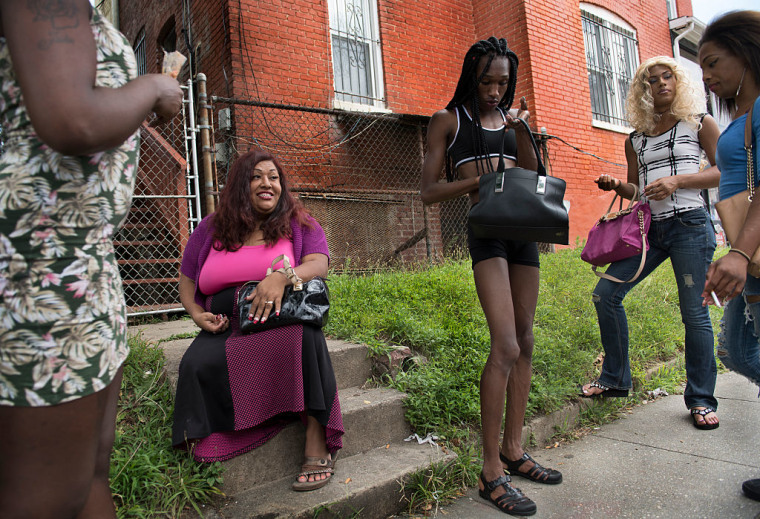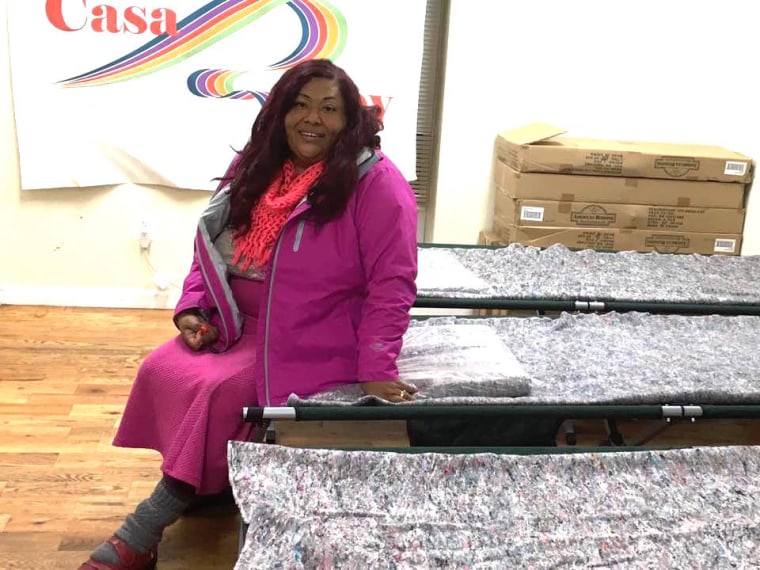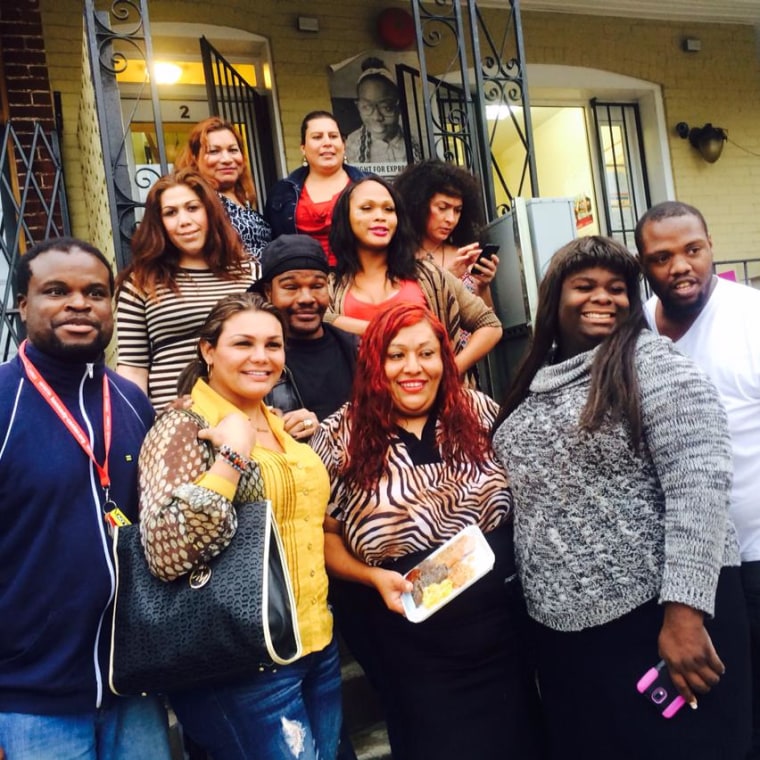Transgender activist Ruby Corado is fighting for Washington D.C.’s most vulnerable. Known as "Mama Ruby" among the city’s LGBTQ youth, the advocate is the proud founder of Casa Ruby, a homeless shelter and advocacy organization for the LGBTQ community.
“I’m known as the person in the city who will work with those people nobody wants to touch,” Corado told NBC Out.

A transgender woman who grew up in El Salvador, Corado overcame many hardships before opening her center. In the 1980s, her father paid human traffickers to get her out of the war-torn country. She said a bus took her to Washington D.C, where traffickers gave the then 16-year-old a room and took all the money she earned working odd jobs.
“The guy of the house — the [head] of the house — tried to rape me, and I run away,” said Corado, who speaks with an accent.
Corado, who was living as a gay man at the time, slept in parks and sometimes stayed with friends until she earned enough to get her own room. In 1989, a real estate rental office hired her as a cleaner and later offered to train her to be a manager.
“I felt like I had won the lottery,” she recalled.
But Corado’s prospects dimmed in the mid-1990s when she started coming out as transgender. She took up drag pageantry while frequenting the clubs in Dupont Circle, a neighborhood known for its gay nightlife.
“I was crowned Miss Gay El Salvador, and every afternoon I would put my crown on and walk around because I felt beautiful,” she said. But the more she donned her wig and pumps outside the clubs, the more she realized she was “a little bit more gay than most people.” Corado said she started to medically transition to female on her own with hormones she bought on the streets.
“Once I transitioned, life was horrible, because even in the gay neighborhood they would accept gay people, but they wouldn’t accept trans,” she explained. Stores refused to serve her. Bus drivers pulled over and told her to get off. A cashier in a fast food restaurant threw change at her. People at work “would say things,” she said. Feeling unwelcome, Corado left her job and turned to sex work to survive.
“I totally, totally hated it, but you know, I had no choice,” she said. Despite her setbacks, Corado was determined to make a difference. She volunteered at local LGBTQ and HIV clinics where she realized she had a knack for helping others. One of the clinics hired her. She said the experience opened her eyes to the lack of safe spaces for LGBTQ youth and inspired a vision.
“I had a dream I was running a gay [homeless] shelter, and in this dream I was putting these satin sheets on the beds, and it was so pretty, and it was very gay,” Corado recalled.

In 2003, Corado co-founded the DC Trans Coalition, an advocacy organization that became a leading force for transgender rights in Washington D.C. But her dreams were nearly shattered after a boyfriend brutally attacked and nearly killed her in 2009, she said. Traumatized, she was unable to work or pay her rent. She moved into a homeless shelter and was granted a $12,000 disability check after a year of struggling. She decided to use the money to open the shelter she dreamed of.
“I’m like, ‘This is it, I’m going to start the organization. I’m going to open a center.' And a big part of it was healing myself from a lot of pain,” Corado said.

In 2012, Corado opened Casa Ruby. Originally a single-floor, drop-in center, it has expanded to multiple houses that provide services and emergency housing for Washington D.C.’s LGBTQ population.
“I sat there before I opened it, and I was like, ‘Dreams do come true,’” Corado said, her voice breaking.
The 40-bed shelter has housed more than 500 people over the past several years. And while Casa Ruby accepts people of all ages across the LGBTQ spectrum, a large portion of those it serves are transgender and gender-nonconforming youth of color, according to Corado.
“Some housing programs will kick them out if they don’t come home at 10 o’clock, but I don’t do that,” she said. “I work with them. I understand them, because they have trauma. I have trauma.”
The 47-year-old said running an LGBTQ center has its challenges. In March, a man threw a brick through a window and attacked one of the center's transgender staff members — the third time in two weeks the center had been vandalized. Following the attacks, Casa Ruby received overwhelming love and support, including cards and donations from people across the country, Corado said. A local gay bar raised $17,000, and an online fundraiser has garnered nearly $15,000 for the center.
“It just filled my heart,” Corado said.
According to the National Center for Transgender Equality, 20 to 40 percent of homeless youth in the United States identify as LGBTQ. Corado said 110 youth are currently on Casa Ruby’s waitlist.
To Corado, it means there is a lot more work to do. “I’m not done,” she promised. “I have a big community behind me.”
OutFront is a weekly NBC Out series profiling LGBTQ people who are making a positive difference in the community.
